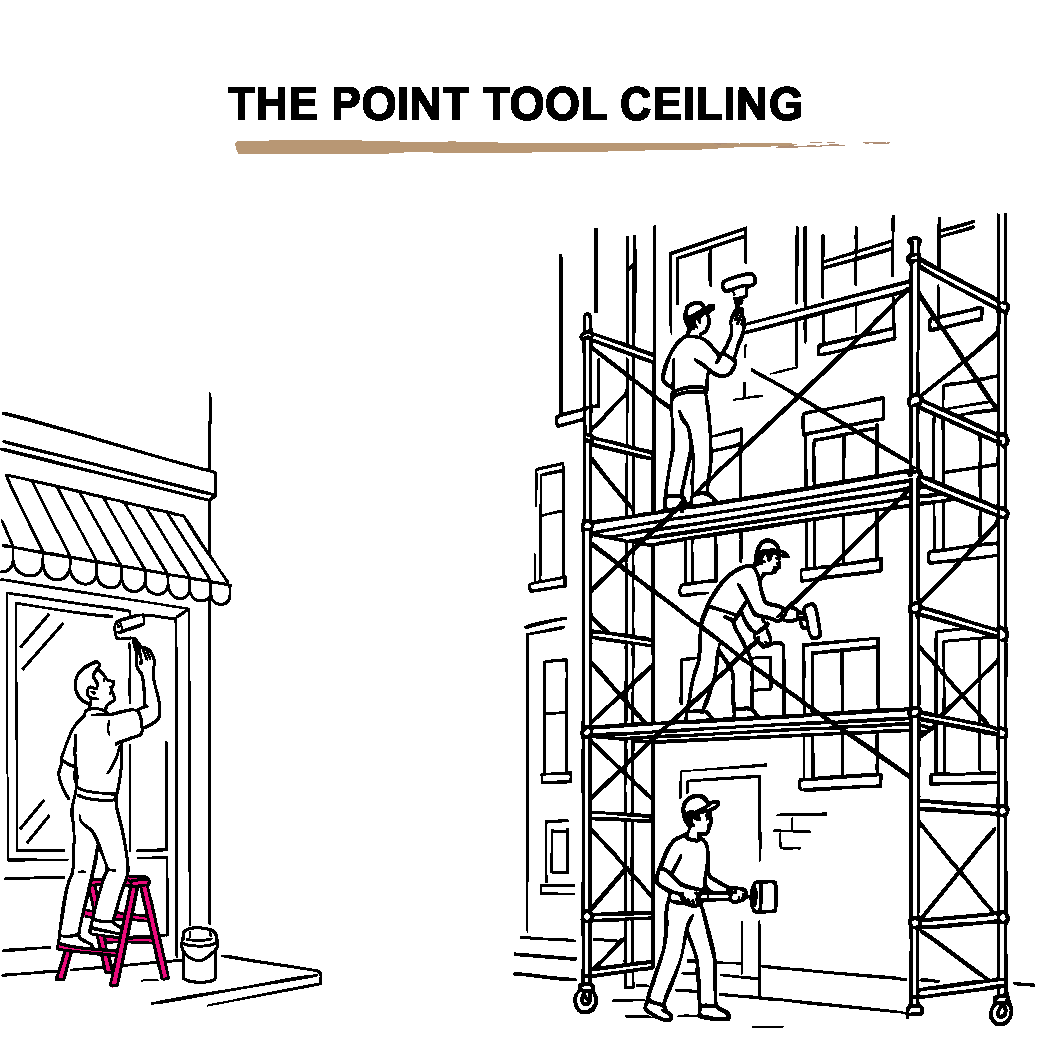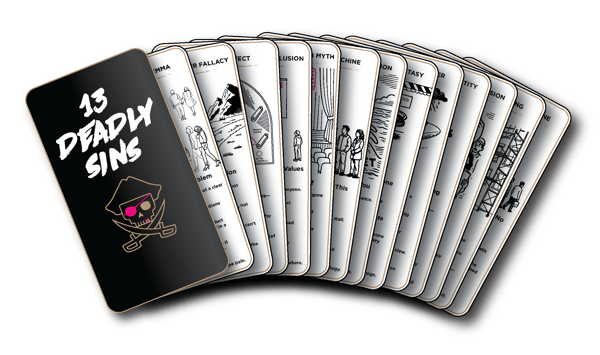
From Point Tool to Talent Experience Platform
When we first met Mahe and Hari Bayireddi, their company was called iMomentous.
And the product?
An iPhone app for mobile recruiting.
It had early traction—clean design, custom deployments, and a better mobile experience than the legacy players.
But it was a point solution.
And point solutions don’t win categories.
Customers liked what they saw.
But they didn’t always know where it fit.
Or how to justify it to the exec team.
Or why they needed it now.
iMomentous won deals against TMP, Jibe, and Findly by offering better analytics and UX. But the wins were narrow.
And the losses were telling.
They were being compared to marketing agencies, ATS add-ons, or bolt-ons to the career site.
It was a trap.
They were solving a problem—just not THE problem.
THE PARTIAL SOLUTION TRAP
The product works.
The team’s talented.
The vision’s evolving.
But the market sees you as a tool, not a transformation.
You’re playing in someone else’s system.
You’re hired to fill gaps, not to lead the strategy.
And every quarter, a new shiny object threatens to replace you.
THE BREAKTHROUGH: AHA + POV + STRIKE
The breakthrough came in two phases.
PHASE 1: CATEGORY CLARITY
In 2015, we helped the team create their first ever POV:
“There’s no difference between marketing a product and marketing a job.”
That single insight changed everything.
Phenom introduced a new category:
Talent Relationship Marketing (TRM) — the CRM for recruiting.
They went from a mobile app to a system for managing awareness, engagement, nurturing, and conversion across the candidate lifecycle. Changing their name to Phenom People in the process.
TRM was sharp, urgent, and deeply felt by buyers.
And they backed it with a real strike:
TRM Blueprint
“IAMPHENOM” campaign
Regional candidate experience awards
Analyst activation and thought leadership
TRM Summit 2016
It worked.
TRM shifted perception.
Phenom started winning higher and deeper in the org.
But the brothers weren't done.
PHASE 2: THE PLATFORM SHIFT
By 2019, Phenom had grown fast—and run into a new ceiling.
They realized the candidate wasn’t the only persona that mattered.
The experience wasn’t just broken at the top of the funnel.
It was broken everywhere.
So they made a bold move:
Redefined the customer. Rewrote the POV. Rebuilt the platform.
They called the problem:
Experience Thrash—the disjointed, frustrating, legacy-driven systems that made recruiting slow, painful, and inhuman.
And they named the solution:
Talent Experience Management (TXM)
TXM wasn’t just a platform.
It was a full-stack framework for transforming the talent journey across four key personas:
Candidate Experience
Recruiter Experience
Management Experience
Employee Experience
The new POV positioned CHROs as transformation leaders—not compliance officers.
And it gave Phenom permission to expand into:
HRIT Experience
Internal mobility
Career pathing
Succession planning
Interview intelligence
High-Volume-Hiring
Onboarding
Learning and development (integration)
Analytics and performance
AI-powered orchestration across the lifecycle
They went from being a slice of the funnel…
To owning the whole system.
IAMPHENOM: LIGHTNING STRIKE 2.0
The shift from TRM to TXM wasn’t just conceptual.
It was cultural.
The Lightning Strike came to life through the IAMPHENOM campaign and annual Physical event—where customers, partners, and employees aligned around a single purpose:
Help a billion people find the right work.
The new POV included:
A unified lifecycle model for talent journeys
A villain customers felt (Experience Thrash)
A Blueprint for orchestration across all touchpoints
Language that stuck: “Talent is the new consumer.” “Experience is the new currency.”
And it worked.
They won enterprise logos.
They shaped analyst coverage.
And they stood alone as the company defining the future of experience-led HR.
THE LESSON FOR FOUNDERS
Partial solutions trap you in someone else’s frame.
You get compared, commoditized, and boxed in.
The only way out is to zoom out:
- Reframe the problem.
- Map the whole journey.
- Build the system, not just the feature.
You don’t have to invent a whole new category all at once.
But you do have to stop thinking like a tool—and start thinking like the outcome.
That’s what Phenom did.
They started as an app.
They became a system.
Then they became a movement.
Want to start a category movement? Let’s have a conversation.
Want to know what trap you might be in? Take the Diagnostic Now >>

